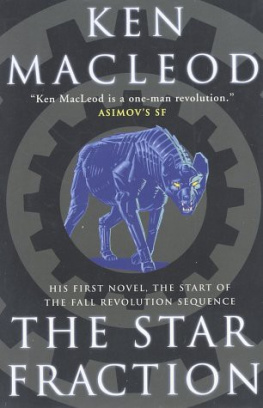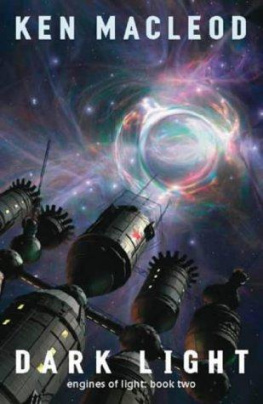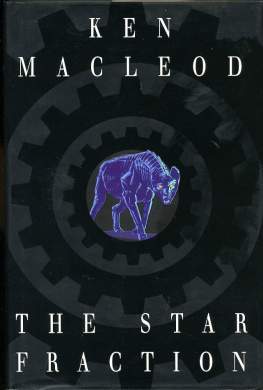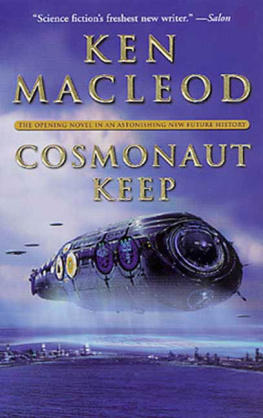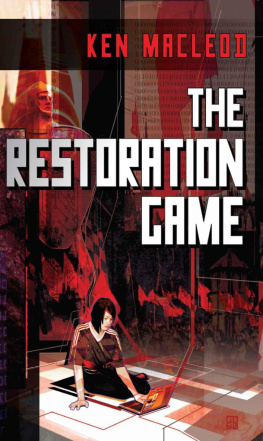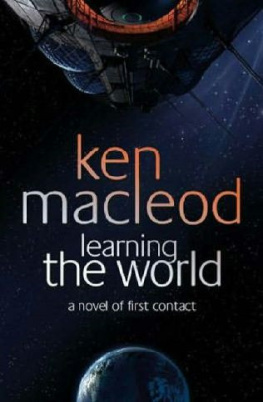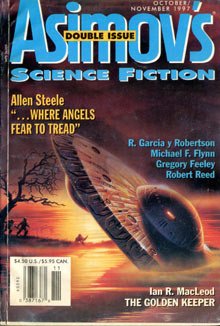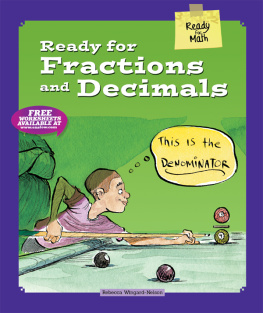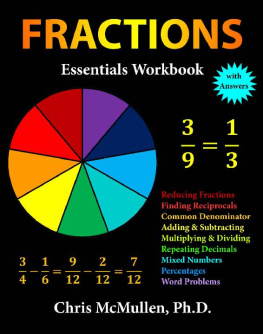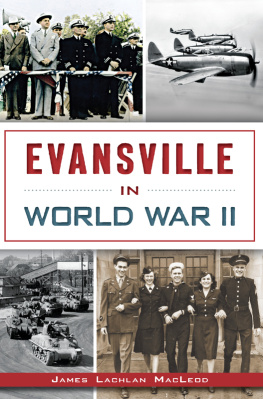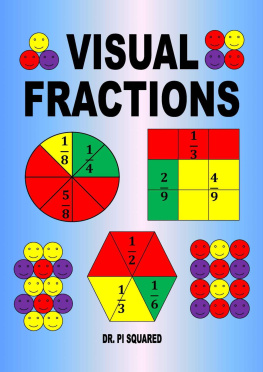Ken MacLeod - Fractions: The First Half of the Fall Revolution
Here you can read online Ken MacLeod - Fractions: The First Half of the Fall Revolution full text of the book (entire story) in english for free. Download pdf and epub, get meaning, cover and reviews about this ebook. publisher: Tom Doherty Associates, genre: Art. Description of the work, (preface) as well as reviews are available. Best literature library LitArk.com created for fans of good reading and offers a wide selection of genres:
Romance novel
Science fiction
Adventure
Detective
Science
History
Home and family
Prose
Art
Politics
Computer
Non-fiction
Religion
Business
Children
Humor
Choose a favorite category and find really read worthwhile books. Enjoy immersion in the world of imagination, feel the emotions of the characters or learn something new for yourself, make an fascinating discovery.
- Book:Fractions: The First Half of the Fall Revolution
- Author:
- Publisher:Tom Doherty Associates
- Genre:
- Rating:3 / 5
- Favourites:Add to favourites
- Your mark:
- 60
- 1
- 2
- 3
- 4
- 5
Fractions: The First Half of the Fall Revolution: summary, description and annotation
We offer to read an annotation, description, summary or preface (depends on what the author of the book "Fractions: The First Half of the Fall Revolution" wrote himself). If you haven't found the necessary information about the book — write in the comments, we will try to find it.
Fractions: The First Half of the Fall Revolution — read online for free the complete book (whole text) full work
Below is the text of the book, divided by pages. System saving the place of the last page read, allows you to conveniently read the book "Fractions: The First Half of the Fall Revolution" online for free, without having to search again every time where you left off. Put a bookmark, and you can go to the page where you finished reading at any time.
Font size:
Interval:
Bookmark:
Contents
For Carol
Contents
The Star Fraction is the first of the Fall Revolution books and my first novel. I started writing it with no idea of where it would end up, let alone of making it the start of a series. It still isnt: The four books can be read in any order, and the last two of them present alternative possible futures emerging from that midtwenty-first-century world I imagined at the beginning.
In this scenario, a brief Third World Waror War of European Integration, as its instigators call itin the 2020s is followed by a US/UN hegemony over a balkanized world. The Fall Revolution in the late 2040s is an attempt to throw off this new world order and to reunify fragmented nations. But, as one of the characters says, What we thought was the revolution was only a moment in the fall. His remark has a theory of history behind it.
History is the trade secret of science fiction, and theories of history are its invisible engine. One such theory is that society evolves because peoples relationship with nature tends to change more radically and rapidly than their relationships with each other. Technology outpaces law and custom. From this mismatch, upheavals ensue. Society either moves up to a new stage with more scope for the new technology, or the technology is crushed to fit the confines of the old society. As the technology falls back, so does the society, perhaps to an earlier configuration. In the mainstream of history, however, society has moved forward through a succession of stages, each of which is a stable configuration between the technology people have to work with and their characteristic ways of working together. But this stability contains the seeds of new instabilities. Proponents of this theory argue that the succession of booms and slumps, wars, revolutions, and counterrevolutions, which began in August 1914 and which shows no prospect of an end, indicates that we live in just such an age of upheaval.
This theory is, of course, the Materialist Conception of History, formulated by the pioneering American anthropologist Lewis Henry Morgan and (a little earlier) by the German philosopher Karl Heinrich Marx. These men looked with optimism to a future society and with stern criticism on the present. Property, wrote one of them, has become, on the part of the people, an unmanageable power. The human mind stands bewildered in the presence of its own creation. The time will come, nevertheless, when human intelligence will rise to the mastery over property. Democracy in government, brotherhood in society, equality in rights and privileges, and universal education, foreshadow the next higher plane of society.
Beam me up. But before stepping onto the transporter to Morgans higher plane, it might be wise to check the specifications. One constraint on the possible arrangements of a future society was indicated by the Austrian economist Ludwig von Mises. He argued that private property was essential to industrial civilization: without property, no exchange; no exchange, no prices; no prices, no way of telling whether any given project is worthwhile or a dead loss. Given that every attempt to abolish the market on a large scale has led to the collapse of industry, his Economic Calculation Argument seems vindicated. Unfortunately, theres no reason why the Economic Calculation Argument and the Materialist Conception of History couldnt both be true. What if capitalism is unstable, and socialism is impossible?
The Star Fraction is haunted by this uncomfortable question. For me, it was acutely felt when I was writing the book in the late 1980s and early 1990s. As a socialist, I had become interested in the libertarian critique of socialism. The fall of the bureaucratic regimes of the East found me neither surprised nor sorry.
No, what wasand remainsdreadful to contemplate was not the collapse of actually existing socialism, but the catastrophic consequences of the attempt to introduce actually existing capitalism and the apparent inability of the millions who had brought down the bureaucratic dictatorships to assert and defend their own interests in the aftermath.
In this novel, these issues are seen through the eyes of characters who are flawed and often mistaken but sometimes heroic. The ideologies through which they try to make sense of it all range from British-style industrial-grade Trotskyism to American-style black helicopter libertarianism. The big questions about history and economics fuel the adventures of angry white guys (and angry black women) with guns, whose actions tip scales bigger than they know. Their world is one where the New World Order is coming to get you, with black helicopters and Men in Black and orbital gun-control lasers.
And then theres all the stuff I made up, which begins on the next page.

It was hot on the roof. Above, the sky was fast-forward: zeppelin fleets of cloud alternating with ragged anarchic flags of black. Bright stars, miland comsats, meteors, junk. Moh Kohn crouched behind the parapet and scanned the band of trees half a klick beyond the campus perimeter. Glades down, the dark was a different shade of day. He held the gun loose, swung it smoothly, moved around to keep cool. The buildings thermals gave him all the cover he could expect, enough to baffle glades or IR -eyes that far away.
Gaia, its hot, he muttered.
Thirty-one Celsius, said the gun.
He liked hearing the gun. It gave him a wired feeling. Only a screensight read-out, but he heard it with his eyes like Sign.
Whatll it be tonight? Cranks or creeps?
Beginning search.
Stop. He didnt want it racking its memory for an educated guess; he wanted it looking. As he was, all the time, for the two major threats to his clients: those who considered anything smarter than a pocket calculator a threat to the human race, and those who considered anything with a central nervous system an honorary member of it.
Hed been scanning the concrete apron, the perimeter wall, the trees for three hours, since 21.00. Relief was due in two. And then he wouldnt just be off-shift, hed be off- active , with a whole week to recover. After seven nights of staring into the darkness, edgy with rumours, jumpy with hoaxes and false alarms, he needed it.
Music and laughter and noise eddied between the buildings behind him, sometimes loud when the speeding air above sent a blast down to ground-level, sometimes as now, in the hot stillness faint. He wanted to be at that party. If no attack came this watchdammit, even if there did. All he had to do was not take incoming fire. Shelling it out was something else, and it wouldnt be the first time hed dissolved the grey-ghostly nightfight memories and the false colours of cooling blood in drinking and dancing and especially in sex the great specific, the antithesis and antidote for violence to the same nights end.
Something moved. Kohn chilled instantly, focusing on a point to his left, where hed seenThere it was again, where the bushes fingered out from the trees. Advance cover. He keyed the weapons inertial memory and made a quick sweep, stepping the nightsight up 3. Nothing else visible. Perhaps this was the main push. He turned back and the gun checked his hand at the place it had marked.
And there they were. Two, three zoom, key to track four, crouching and scurrying. Two with rifles, the others lugging a pack. The best-straight-line of their zigzag rush arrowed the Alexsander Institute. The AI block.
Cranks, then. No compunction.
Do it for Big Blue, he told the gun. He made himself as small as possible behind the parapet, holding the gun awkwardly above it, and aimed by the screensight image patched to his glades. His trigger finger pressed Enter. The weapon took over; it aimed him. In a second the head-up image showed four bodies, sprawled, stapled down like X- and Y-chromosomes.
Next pageFont size:
Interval:
Bookmark:
Similar books «Fractions: The First Half of the Fall Revolution»
Look at similar books to Fractions: The First Half of the Fall Revolution. We have selected literature similar in name and meaning in the hope of providing readers with more options to find new, interesting, not yet read works.
Discussion, reviews of the book Fractions: The First Half of the Fall Revolution and just readers' own opinions. Leave your comments, write what you think about the work, its meaning or the main characters. Specify what exactly you liked and what you didn't like, and why you think so.

